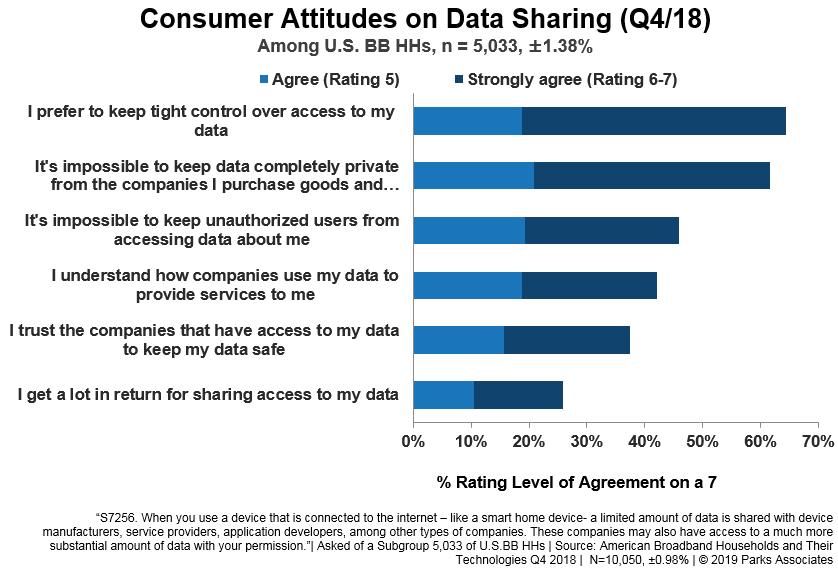This week it was revealed that Apple uses contractors to review Siri recordings, which exposes the recordings of Apple customers’ personal lives including recordings of doctor visits and other personal situations. In April, an investigation by Bloomberg highlighted that one way in which Amazon improves the Alexa solution is to have humans review customers’ requests. In July, a study from a Belgian public broadcaster revealed that recordings from Google Assistant were being transcribed by contractors, once again exposing sensitive information about the personal lives of users.
Tech companies report that using humans to review interactions with AI-based personal assistant solutions is designed to make the solutions more accurate. Understandably, some consumers are not comfortable with others having access to recordings of their private interactions. This concern with smart speakers adds to broader consumer concerns about the use of their personal data as they adopt emerging connected devices. Manufacturers have much to gain from capturing and using consumer data including insight that can be used for future product development and efficient target marketing strategies. Most manufacturers are of the impression that consumer privacy concerns will be alleviated if consumers receive substantial benefits from giving up their data. However, our data shows only 25% of consumers currently perceive that they get a lot in return for their data. In addition, only 37% of US broadband households trust companies that have access to their data to keep it safe.
Regulatory bodies and other third parties have started to intervene to help consumers protect device-generated data. California lawmakers have introduced a legislative bill (the Anti-eavesdropping Act) that restricts device manufacturers’ ability to collect saved smart speaker recordings, allowing these manufactures to save recordings only after they have been given written consent from end users. This follows the Right to Know Act recently passed in Illinois that requires online companies to be transparent about the consumer data they collect and share. Researchers at Princeton University are developing a tool (called IoT Inspector) that will help consumers determine if connected devices such as smart speakers are sharing their data with third parties.
Third party resources that put consumers in complete control of their data will restrict the extent to which device manufacturers can leverage this data. Therefore, it is prudent for device manufacturers to gain consumer trust as it relates to data privacy. To achieve this, Amazon and Google have started giving consumers the option to opt out of some of the ways in which their personal device recordings are used. Apple reports that only a small portion (less than 1%) of Siri interactions are analyzed to improve the personal assistant and these requests are not associated with users’ Apple ID.
Parks Associates report Consumer Privacy: My Smart Home, My Castle provides more insight on current consumer attitudes around data privacy.



